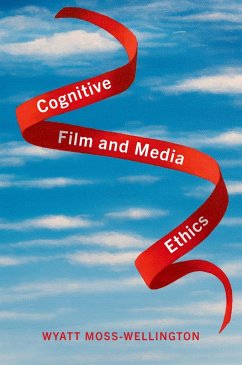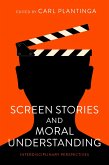Cognitive Film and Media Ethics provides a grounding in the use of cognitive science to address key questions in film, television and screen media ethics. This book extends past works in cognitive media studies to answer normative and ethically prescriptive questions: what could make media morally good or bad, and what, then, are the respective responsibilities of media producers and consumers? Moss-Wellington makes a primary claim that normative propositions are a kind of rigour, in that they force media theorists to draw more active ought conclusions from descriptive is arguments. Cognitive Film and Media Ethics presents the rigours of normative reasoning, cognitive science and consequentialist ethics as complementary, arguing that each seeks progressive elaboration on their own models of causality, and causal projections are crucial for any reflection on our moral responsibilities in the world. A hermeneutics of "ethical cognitivism" is applied in the latter half of the book, with essays each addressing a different case study in film, television, news and social media: cinema that sets out to inspire moral dissonance in the viewer, satirical and humorous depictions of family drama in film and television, the politics of the romantic comedy, formal aspects of screen media bullying in an era dubbed the "television renaissance," and contemporary problems in the conflation of news and social media. Cognitive Film and Media Ethics synthesises current research in social psychology, anthropology, memory studies, emotion and cognition, personality and media selection, and evolutionary biology, integrating wide-ranging concepts from the various disciplines that make up cognitive theory to provide new vantages on the applied ethics of film and screen media.
Dieser Download kann aus rechtlichen Gründen nur mit Rechnungsadresse in A, B, BG, CY, CZ, D, DK, EW, E, FIN, F, GR, HR, H, IRL, I, LT, L, LR, M, NL, PL, P, R, S, SLO, SK ausgeliefert werden.









